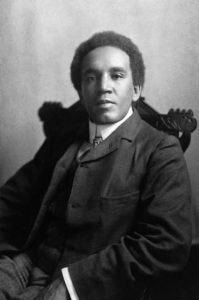The Samuel Coleridge-Taylor Prize has been created specifically to support young composers from underrepresented backgrounds, as part of our commitment to enable more young people to embark on a career within the classical music industry. The winning composition will be selected by a panel of industry experts, with the winner being given the opportunity to develop their work through coaching and mentoring.
THE BRIEF
Entrants are invited to submit a 5-minute piece suitable for a string quartet to play (two violins, viola and cello). The piece can be brand new, or a previously created original work of the composer. The final piece will be performed by LMP as part of their series at St John the Evangelist Church, Upper Norwood.
THE PRIZE
In the first instance, three entrants will be shortlisted and will be given the chance to workshop their piece with support from a leading UK composer and LMP players, (worth £500), who will offer insight and advice into writing styles and techniques. The composer of the overall winning composition will also receive a £1,000 cash prize, as well as having their composition premiered as part of LMP’s concert season at St John’s Upper Norwood.
ELIGIBILITY
The competition is aimed at composers from London and the South East. This includes all London boroughs, plus the counties of Kent, East Sussex, West Sussex, Hampshire, Isle of Wight, Surrey, Berkshire, Buckinghamshire and Oxfordshire.
To enter the competition, you must be under 30 on the date of the final submission deadline (e.g. your 30th birthday will be on or after 1 July 2023 – please note that we may request proof of this).
As the purpose of the competition is to provide a platform for composers from underrepresented groups, you must also fulfil at least one of the following criteria:
- Come from a global majority background
- Have previously been eligible for free school meals, or come from a “working class” background
- Identify as neurodivergent/ASD/ADHD
- Have a physical disability or long-term limiting illness
- Have a learning disability such as, (but not limited to), dyslexia or dyspraxia
We will rely on each candidate to self-identify which of the above categories they fall into and, with the exception of proof of age, will not ask for you to prove your eligibility.
SUBMITTING YOUR ENTRY
- The final deadline for submissions is 11.59pm on Monday 31 July.
- Submissions should be sent via the Samuel Coleridge-Taylor Prize 2023 Entry Form.
- Submissions should be in audio format (either an mp3 or m4a file) and will need to be supplied via a file download link which you’ll be asked to include on the entry form.
- As part of your submission, you will also need to supply a score, however this can take the form of a graphic or text score, and doesn’t necessarily need to be a traditional score.
AWARD CRITERIA
When reviewing each submission, judges will be looking for the following:
- Originality: How original is the writing? If not an entirely original composition, how effectively does the piece provide a fresh perspective on an existing piece?
- Suitability: How suitable is the piece for the instruments that will be played? Does the composer show an understanding of the different instruments’ capabilities?
- Form: If the composer chooses to use a particular structure (for example, a sonata), how effective is their use of that structure?
TIMELINES
| 31 July 2023 | Final deadline for submissions |
| 31 August 2023 | Final review by panellists – top three entrants shortlisted |
| 3 September | All entrants notified |
| Week commencing Monday 16 October | Composition development workshops |
| 31 October 2023 | Final winner announced |
| January 2024 | Final performance |
Who was Samuel Coleridge-Taylor?

Samuel Coleridge-Taylor was born in 1875 to an English mother and a Sierra Leone Creole father whom he never met. He was named after the poet Samuel Taylor Coleridge and raised in Croydon by his mother. His maternal grandfather was a violinist who saw the young Coleridge-Taylor’s talent and encouraged him to enrol at the Royal College of Music. He won a scholarship, beating out Gustav Holst amongst others, and began studying as a violinist before switching to composition.
He was deeply involved with African-American networks, counting amongst his friends W. E. B. Dubois, Frederick Loudin, Booker T. Washington and Paul Laurence Dunbar, whose poems he set to music. In works such as ‘Symphonic Variations on an African Air’, he sought to integrate the melodies of African-American spirituals within the classical music tradition. Like Brahms, Dvořák or Grieg, Coleridge-Taylor was participating in the nineteenth-century trend of musical nationalism.
Samuel Coleridge-Taylor died at 37 of pneumonia. Despite his popular successes, he had been prevented from reaping the financial rewards. With public support, a memorial concert was held at the Royal Albert Hall which raised significant funds for his family. His widow Jessie was granted a pension from the king and the Performing Rights Society was established to ensure composers were paid adequately for their works’ success. Later, his daughter became a composer-conductor and his son worked to ensure his father’s music was performed after his death.
